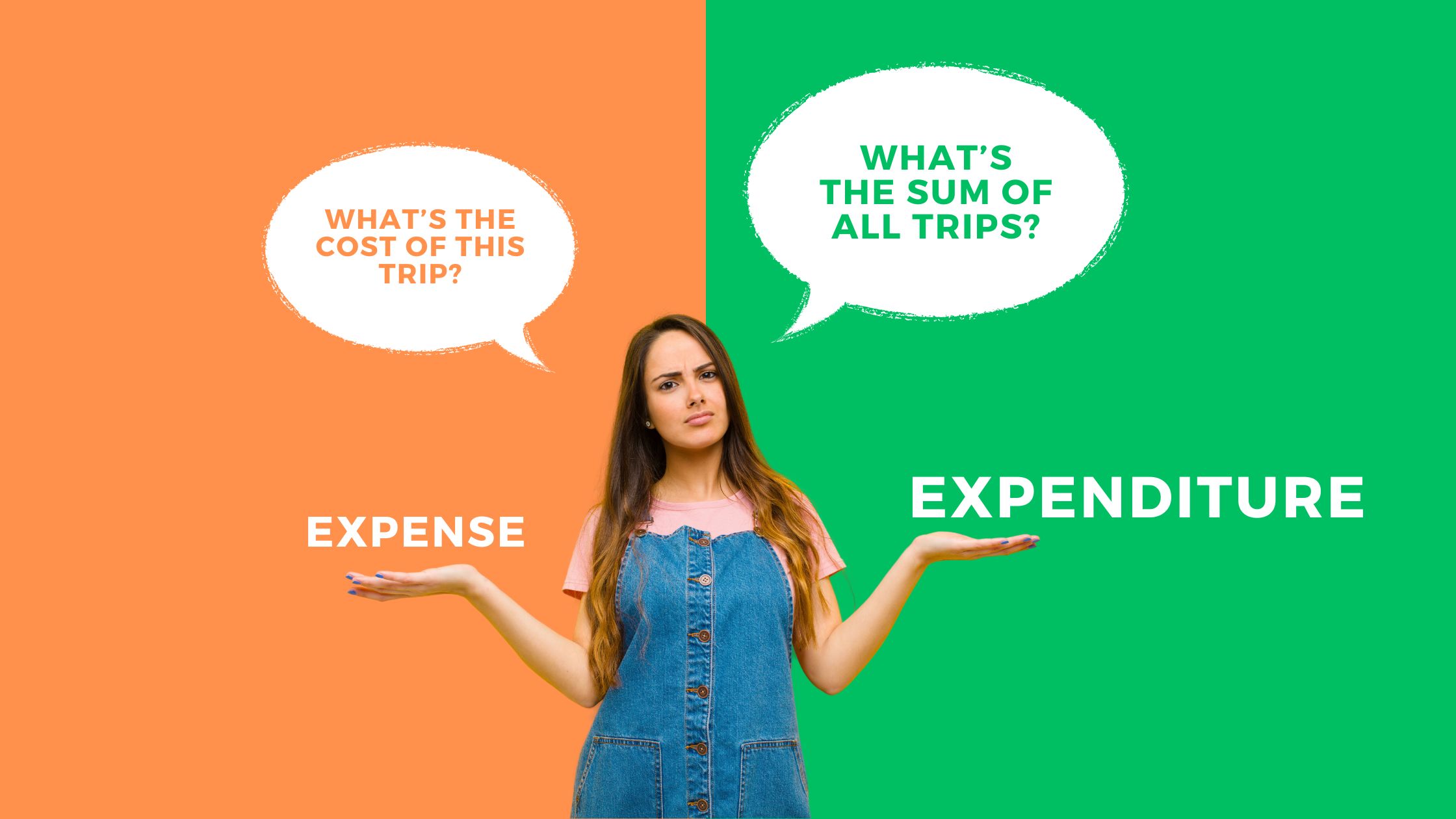When managing your money whether it’s for business or personal life you’ve probably come across the words expense and expenditure. They may sound similar both involve spending money, but understanding the difference between these two terms can help you manage your budget more effectively. For many people, understanding the difference can be a bit confusing, especially when it comes to managing day-to-day costs versus larger investments.
In this blog, we’ll break down what each term means, give you practical examples, and explain how keeping track of both can lead to better financial decisions. Plus, we’ll show you how CoTrav can make managing your expenses easier, especially when it comes to business travel.
What Is an Expense?
An expense is the money you spend on things you need regularly, either in your personal life or in business. Think of it as your regular, ongoing costs. Whether it’s paying rent for your office or buying groceries for your home, these are necessary payments that keep things running smoothly. Expenses are usually smaller, frequent payments that you deal with regularly.
Examples of Expenses:
- For your business: Paying for utilities, office supplies, employee salaries, and monthly subscriptions.
- For personal life: Your monthly grocery bills, rent, transportation costs, and phone bills.
Characteristics of an Expense:
- Regular Payments: Expenses happen often, like paying rent every month or buying groceries weekly.
- Essential Needs: They are necessary for daily life or business operations, such as paying for food, transportation, or office supplies.
- Short-Term Impact: Expenses affect your budget in the short run. They are part of your regular spending that you need to manage carefully.
- Smaller Amounts: Expenses usually involve smaller amounts of money compared to larger investments, but they can add up over time.
- Immediate Use: The money spent on expenses is typically for things you use right away or within a short time, like utility bills or fuel for your car.
What Is an Expenditure?
An expenditure, on the other hand, is more like an investment. It’s a one-time or occasional cost for something that will benefit you or your business for a long period. When you make an expenditure, you’re usually buying something big, like new equipment, that you’ll use for years.
Examples of Expenditures:
- For your business: Buying a new office building, purchasing advanced machinery, or upgrading software systems.
- For personal life: Buying a car, renovating your house, or paying for higher education.
Characteristics of an Expenditure:
- Larger Amounts: Expenditures usually involve spending a lot of money compared to regular expenses.
- One-Time or Infrequent: You don’t pay for expenditures often. They are typically big purchases, like buying a car or renovating a home.
- Long-Term Value: Expenditures are meant to provide benefits over a long period, such as investing in new equipment that helps your business.
- Creates or Improves Assets: Expenditures often help you acquire or improve things you own, like property or technology, that can be valuable in the future.
- Requires Planning: Because expenditures involve larger amounts of money, you need to think carefully and plan before making these purchases.
Differences Between Expense and Expenditure
| Aspect | Expense | Expenditure |
| Frequency | Recurring (monthly, yearly) | One-time or infrequent |
| Purpose | Covers daily operations or personal needs | Long-term investment |
| Financial Impact | Affects your cash flow and income statement | Shows up on your balance sheet as an asset |
| Examples | Paying rent, buying office supplies | Purchasing new equipment, investing in property |
Why Understanding the Difference Matters
You might be wondering, Why should I care about the difference between an expense and an expenditure? The truth is, knowing this difference helps you manage your money better. By understanding what you’re spending on short-term needs (expenses) versus long-term investments (expenditures), you can make more informed decisions.
Case Studies for Better Understanding
Business Example:
Let’s say your company often requires employees to travel for meetings. The cost of booking flights, hotels, and meals for these trips is an expense because it’s a regular, ongoing cost to keep your business running smoothly.
However, if you decide to invest in a corporate travel management system to streamline all your travel bookings and expenses, that’s an expenditure. It’s a one-time, larger investment that will benefit your business in the long run by saving time and reducing travel costs.
Personal Finance Example:
In your personal life, travel-related expenses might include the cost of booking a flight, staying in a hotel, or paying for meals during a vacation; these are regular costs that help you enjoy the trip.
However, if you decide to buy a vacation home or invest in an annual travel membership that gives you discounts on flights and accommodations, that’s an expenditure. It’s a larger, one-time investment that offers long-term value and benefits for future travel.
The Essential Differentiating Between Expense and Expenditure
Understanding whether a cost is an expense or an expenditure helps you:
- Manage your cash flow: Expenses need to be monitored carefully because they can drain your cash flow if not managed properly. Expenditures, though large, can be planned and budgeted for.
- Plan for the future: While expenses help you meet your immediate needs, expenditures are strategic investments that can lead to growth, both in your personal life and your business.
- Make better financial decisions: Being aware of what you’re spending in the short term versus what you’re investing in for the long term allows you to allocate your resources wisely.
How CoTrav Helps You Manage Your Travel Expenses
If your business involves travel, managing travel expenses can be one of the trickiest parts. This is where CoTrav can help. With CoTrav’s travel management platform, you can keep better track of your expenses, ensuring your travel budget is under control.
Here’s how CoTrav helps you with travel expenses:
- Track spending: Get a clear overview of what’s being spent on flights, hotels, and transportation in real-time.
- Reduce costs: CoTrav helps you find the best deals and rates, ensuring you get the most value for your money.
- Streamline approvals: Managing travel expenses becomes simpler with CoTrav’s streamlined approval process, avoiding unnecessary delays.
- Generate expense reports: Easily access detailed reports that help you analyze your spending, making it easier to adjust your travel policies if needed.
With CoTrav, managing your business travel expenses becomes stress-free, allowing you to focus on the bigger picture.
Conclusion
Understanding the difference between expenses and expenditures is essential for effective financial management. Expenses are your everyday costs, while expenditures are larger investments that provide long-term benefits. By tracking both, you can maintain a balanced budget and make informed decisions.
With CoTrav, managing your travel expenses is easier, allowing you to focus on growing your business and enjoying life. Remember, knowing how to differentiate between these two types of spending can lead to a healthier financial future!
Say goodbye to travel expense headaches! CoTrav makes managing your corporate travel budget simple and stress-free.




